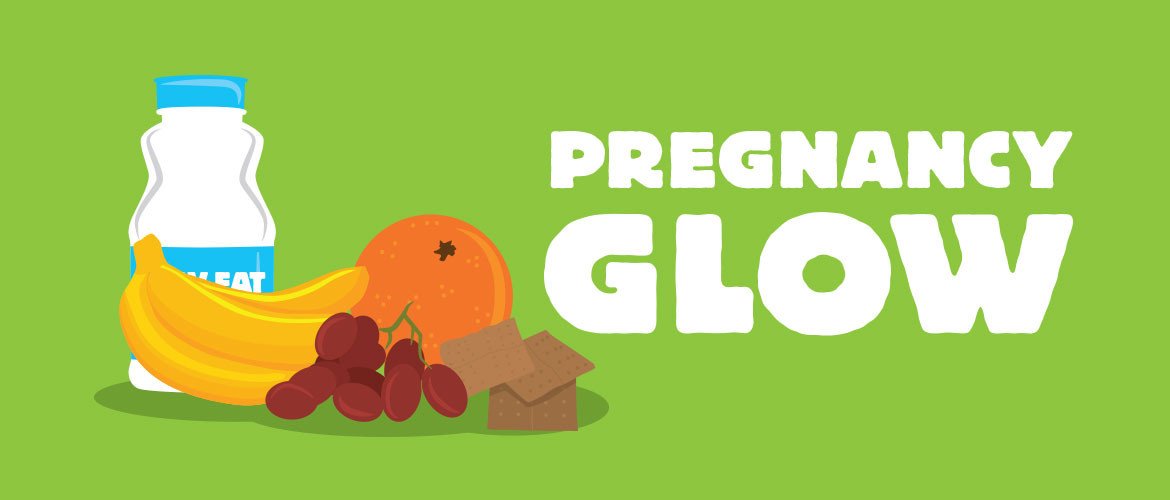I’m the proud momma of three wonderful kiddos. And while the beauty and discomfort of pregnancy and childbirth fades over time, there is nothing like reveling in the body’s amazing ability to grow a human. While growing this bundle of joy takes little conscious effort on your part, it does take every bit of extra nutrients to make a perfect new human.
So, what should you eat? And how much should you eat? Here’s some food for thought.
Avoiding Extra Weight
When it comes to feeding your growing baby, it only takes a few hundred extra calories a day, throughout those 9 months, and you don’t need to gain any weight in the first trimester. While it would be awesome during that incubation period to eat double the calories, that just leads to Momma gaining extra weight, with no additional benefits for Baby. Check out these guidelines for weight gain during pregnancy for more information.
Get more of this:
- Prenatal vitamins – If you ever need a little nutrient insurance, it’s when you’re pregnant. And between morning sickness and food aversions, sometimes you just can’t get the right foods to meet your increased nutrient demands. Look for a chewable or powdered prenatal multi if you just can’t keep that pill down.
- Folate – Getting 400 micrograms a day before you get pregnant helps reduce the risk of neural tube defects in your baby. If you are pregnant, increase your daily intake to 600 micrograms. The prenatal vitamin will help, but you can also get folate from fortified cereals, breads and rice, orange juice, spinach, asparagus, Brussels sprouts and liver. Get a list of high folate foods here.
- Iron – This mineral helps your red blood cells make the parts necessary to carry oxygen. In pregnancy, your blood volume doubles to provide the essential oxygen to your growing baby, so your iron needs also double. Focus on eating more high iron foods such as meat, poultry, beans and iron-fortified cereals. Add in a good source of vitamin C – like a fruit or vegetable – so your body can absorb the iron.
- Calcium – You are growing a whole new set of bones and teeth, so it’s important to get your three servings of dairy every day. You can’t just count on leafy greens for the necessary 1,000 milligrams of calcium you need daily. When you’re pregnant, your stomach doesn’t have room for 10 cups of spinach, the equivalent calcium as one cup of milk. If you have lactose intolerance, find tips and tricks to add dairy to your day.
- Vitamin D – It works with calcium to grow those bones and teeth. The best sources are milk and fatty fish, such as salmon.
Use good judgment:
- Caffeine – There’s no clear evidence that you must quit caffeine completely during pregnancy, but you should keep that jolt of energy to one a day, or less than 200 milligrams of caffeine.
- Fish – It’s a great source of omega-3 fats – essential fats for both baby’s healthy neurological (brain) development and early visual development. Recommendations are to eat 8-12 ounces of fatty fish, such as salmon, twice a week. Do be cautious of fish that is high in mercury.
You never want this:
- Food poisoning – Being sick when pregnant is just the pits, so remember these food safety tips. Plus check out this list of foods that can put you at risk of Listeria, a type of food poisoning especially concerning for pregnant moms.
- Raw milk & raw milk cheese – It’s not safe to drink raw (unpasteurized) milk or consume anything made with raw milk, especially during pregnancy. Pasteurization of dairy foods kills microbes that may cause illness or disease. Make sure you only drink pasteurized milk and keep in mind that most cheese in the US is made from pasteurized milk, so the only place you might find raw milk cheese is at a farmer’s market or a specialty cheese shop.
- Alcohol – Consumption of alcohol during pregnancy has been linked to physical defects, learning disabilities and emotional problems. Instead, pour a cold glass of chocolate milk in a martini glass and party on with your pregnant self.
With just a few adjustments to your food and beverage choices – focusing on low fat dairy, fruits, vegetables, whole grains and lean proteins – you will bring on that beautiful pregnancy glow while growing a healthy baby.
*Always consult your healthcare provider regarding your specific health needs. Certain situations in pregnancy – such as gestational diabetes or anemia or having previously delivered a low birth weight baby – warrant speaking with a doctor and a Registered Dietitian Nutritionist to ensure you’re getting the nutrients you need for your unique situation.




